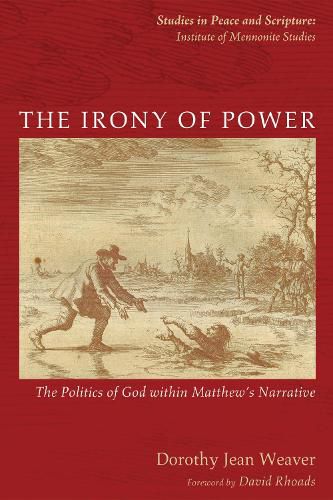Readings Newsletter
Become a Readings Member to make your shopping experience even easier.
Sign in or sign up for free!
You’re not far away from qualifying for FREE standard shipping within Australia
You’ve qualified for FREE standard shipping within Australia
The cart is loading…






This title is printed to order. This book may have been self-published. If so, we cannot guarantee the quality of the content. In the main most books will have gone through the editing process however some may not. We therefore suggest that you be aware of this before ordering this book. If in doubt check either the author or publisher’s details as we are unable to accept any returns unless they are faulty. Please contact us if you have any questions.
This volume engages the Gospel of Matthew in full awareness of its inherently political character. Weaver situates Matthew’s version of the good news of the kingdom squarely within the real world of first-century Palestine and its occupying power, the Roman Empire. The essays here focus prominently and collectively on the issues of power and violence that not only pervade the historically occupied Jewish community of first-century Palestine, but also are clearly visible throughout Matthew’s narrative account. A lower-level reading of the Matthean text offers a bleak portrait of the overwhelming power and violence exerted by the Roman occupying authorities and their upper-echelon Jewish collaborators against the wider Jewish community of first-century Palestine. But an upper-level/God’s-eye reading of Matthew’s narrative consistently reveals the fundamental irony at the heart of the New Testament as a whole, of the Jesus story broadly conceived, and of Matthew’s narrative account in specific. This irony overturns all humanly recognized definitions of power and demonstrates the astonishing politics of God, which defeats evident power through apparent powerlessness and overcomes violence through nonviolent initiatives.
$9.00 standard shipping within Australia
FREE standard shipping within Australia for orders over $100.00
Express & International shipping calculated at checkout
This title is printed to order. This book may have been self-published. If so, we cannot guarantee the quality of the content. In the main most books will have gone through the editing process however some may not. We therefore suggest that you be aware of this before ordering this book. If in doubt check either the author or publisher’s details as we are unable to accept any returns unless they are faulty. Please contact us if you have any questions.
This volume engages the Gospel of Matthew in full awareness of its inherently political character. Weaver situates Matthew’s version of the good news of the kingdom squarely within the real world of first-century Palestine and its occupying power, the Roman Empire. The essays here focus prominently and collectively on the issues of power and violence that not only pervade the historically occupied Jewish community of first-century Palestine, but also are clearly visible throughout Matthew’s narrative account. A lower-level reading of the Matthean text offers a bleak portrait of the overwhelming power and violence exerted by the Roman occupying authorities and their upper-echelon Jewish collaborators against the wider Jewish community of first-century Palestine. But an upper-level/God’s-eye reading of Matthew’s narrative consistently reveals the fundamental irony at the heart of the New Testament as a whole, of the Jesus story broadly conceived, and of Matthew’s narrative account in specific. This irony overturns all humanly recognized definitions of power and demonstrates the astonishing politics of God, which defeats evident power through apparent powerlessness and overcomes violence through nonviolent initiatives.